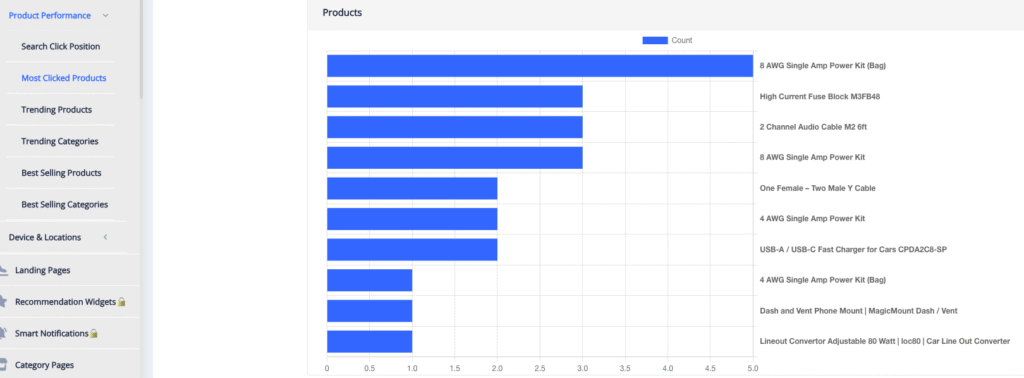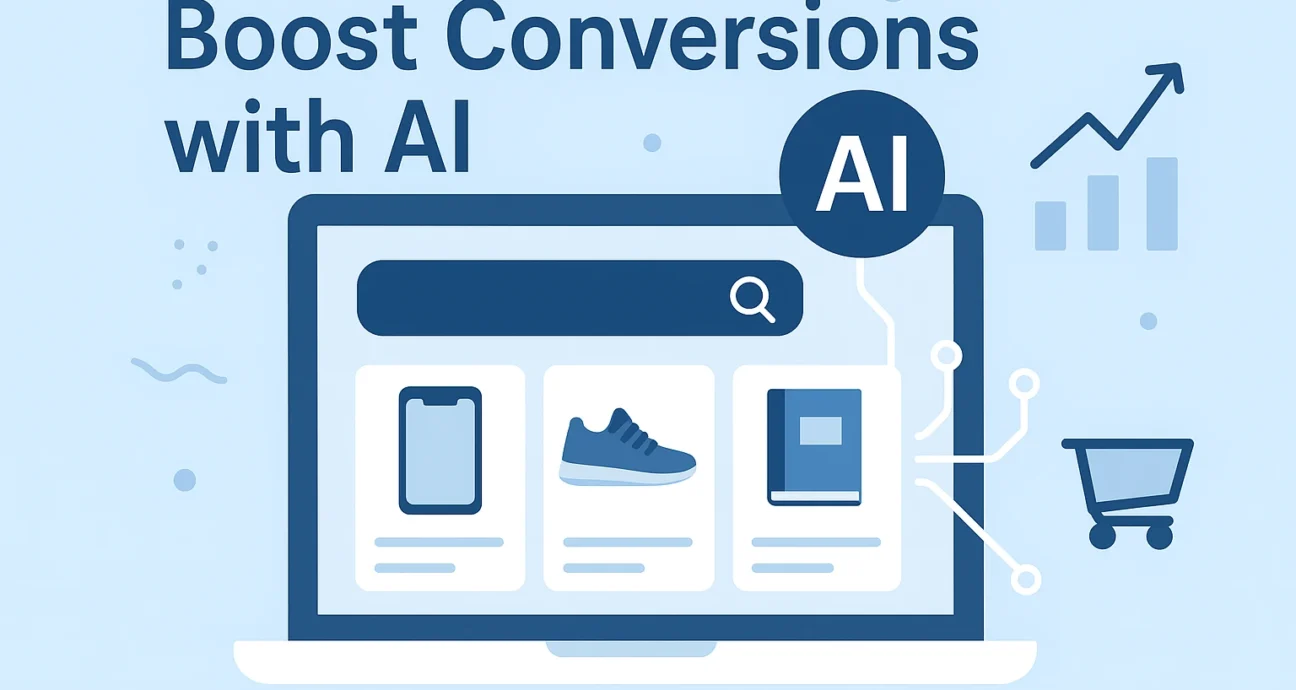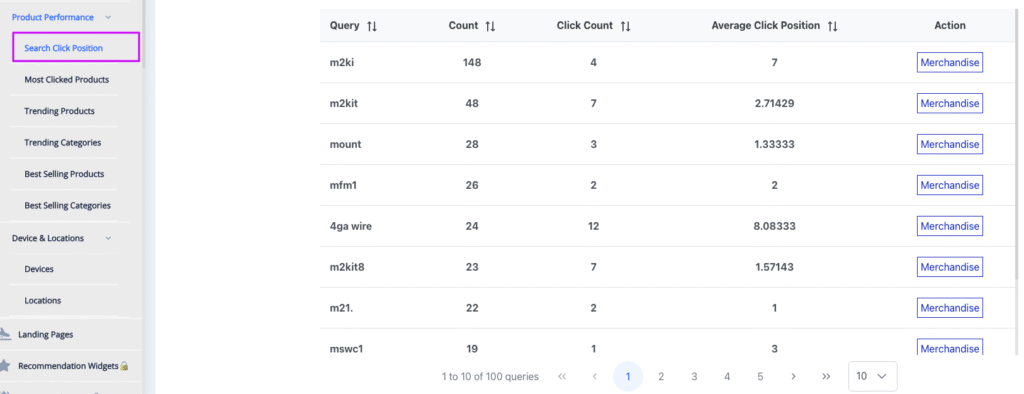In today’s ecommerce landscape, search has become the silent deal-maker. Customers expect to find exactly what they’re looking for in seconds—whether it’s the latest smartphone, a pair of sneakers, or a new book. Yet too many online stores still rely on basic keyword search that often fails to understand what shoppers really mean.
This is where Learning to Rank (LTR) and AI-driven search step in. By blending machine learning with behavioral insights, ecommerce businesses can turn search from a functional feature into a true conversion engine. At ExpertRec, we help ecommerce brands harness this power effortlessly—delivering smarter, more relevant search results that drive higher sales.
Why Traditional Search Falls Short
Traditional keyword search engines often operate on a literal level. For example, if a user searches for “Apple TV,” they might get results that mention “apple” in any context—recipes, fruit baskets, or even unrelated product descriptions. While technically relevant by keyword standards, these results frustrate users, who expected to see only streaming devices.
The problem isn’t the absence of data. It’s that conventional search engines don’t understand intent. They treat every word the same, rather than learning which results are truly useful.
In ecommerce, this gap is costly. A poor search experience leads to higher bounce rates, abandoned carts, and ultimately lost revenue.
Introducing Learning to Rank
Learning to Rank (LTR) is an AI technique designed to optimize search relevance based on user interactions. Instead of just matching words, the system learns from real behaviors:
- Which products are clicked most often.

- What leads to purchases or add-to-cart events.
- How customers refine their searches when they don’t find what they want.
By feeding these signals into machine learning models, LTR continuously reshapes rankings so the most valuable, relevant items appear at the top.
There are three main approaches to LTR:
- Pointwise: Assigns a relevance score to each product individually.

- Pairwise: Compares products in pairs to see which is a better match.
- Listwise: Optimizes the entire list of results for overall user satisfaction.
At ExpertRec, our ecommerce search blends these approaches, allowing businesses to deliver dynamic, intent-driven results without needing a team of data scientists.
The Signals That Matter in Ecommerce Search
What makes LTR powerful is its ability to use real-world signals.
- Clicks & Purchases
The strongest indicators of relevance are actions like clicks and completed purchases. If customers consistently click on a product for a certain search term, the engine learns to prioritize it. - Session Behavior
If users refine their search multiple times or navigate to page three and beyond, it’s a red flag—the earlier results didn’t deliver. This feedback helps the system adjust ranking logic to surface more relevant items earlier. - Trends & Seasonality
Relevance isn’t static. What shoppers want today may not be what they wanted last month. Think of trending fashion, seasonal products, or viral tech gadgets. LTR models detect shifts in popularity and adjust rankings to stay current.
By incorporating these signals, ExpertRec ensures that your ecommerce store feels alive—constantly learning from your shoppers and keeping your search results fresh.
Context is Everything: Personalization and Location
Another key insight from LTR is the importance of context. A search that seems simple—like “jackets”—can mean very different things depending on who is searching and where they are.
- Personalization: A returning customer who usually buys women’s clothing should see women’s jackets first, while a new shopper browsing kids’ products should see children’s jackets.
- Geo-targeting: Customers in cold climates might see winter coats, while those in warmer areas see light windbreakers.
- Category Awareness: Search engines must avoid “false matches” by understanding category context. For example, “apple” in a fruit category should never bring up electronics.
ExpertRec’s AI search integrates these contextual layers, ensuring every shopper sees results that make sense for their unique situation.
How ExpertRec Brings LTR to Ecommerce
Many businesses assume that deploying AI-driven search requires heavy infrastructure, a team of data scientists, and months of model training. ExpertRec makes it different:
- Plug-and-Play Integration: Add ExpertRec’s search engine to your ecommerce site without technical headaches.
- AI-Powered Personalization: Automatically adjusts rankings for each user based on behavior and profile.
- Geo Merchandising: Tailors product visibility by region, making location-specific promotions seamless.
- Advanced Analytics: See exactly how customers interact with search and get actionable insights for merchandising.
- Dynamic Ranking: Constantly adapts to clicks, carts, purchases, and trending signals to maximize conversions.

In short, we take the complex world of LTR and make it simple for ecommerce businesses to implement and scale.
The Business Impact of Smarter Search
Investing in AI-powered LTR search is not just about improving user experience—it directly impacts revenue. Studies consistently show that:
- Shoppers who use site search are 2–3x more likely to convert.
- Relevant search results increase cart size by encouraging product discovery.
- Personalized rankings boost repeat purchases by building loyalty.
For ecommerce businesses, search is no longer a background feature. It is a frontline sales tool—one that can make or break a customer’s journey.
Looking Ahead: The Future of Ecommerce Search
As ecommerce continues to evolve, customers will only demand more personalization, relevance, and speed. Static keyword search simply can’t keep up.
The future belongs to adaptive systems like ExpertRec’s AI-powered search—systems that don’t just react to queries but learn, anticipate, and deliver. By adopting Learning to Rank, businesses can transform search into a competitive advantage: turning casual browsers into loyal buyers.
FAQs
Q1. What is Learning to Rank (LTR) in eCommerce?
It’s an AI method that improves search results by learning from clicks, purchases, and user behavior.
Q2. How is LTR better than keyword search?
LTR understands intent, not just words—showing the most relevant products first.
Q3. What signals does ExpertRec use?
Clicks, purchases, session behavior, trends, personalization, and geo-location.
Q4. Do I need coding or data science skills to use it?
No. ExpertRec makes LTR plug-and-play for any eCommerce store.
Q5. How does LTR impact conversions?
Smarter search increases product discovery, reduces bounce rates, and boosts sales.
Conclusion
In a crowded ecommerce market, every second of a customer’s journey counts. Traditional keyword search leaves too much on the table, frustrating users and costing businesses sales.
Learning to Rank changes the game by making search dynamic, adaptive, and personalized. And with ExpertRec, ecommerce businesses can harness this power without the complexity of managing AI models themselves.
If you’re ready to take your ecommerce search beyond keywords and deliver experiences that delight and convert, it’s time to explore ExpertRec’s AI-powered LTR search engine.


